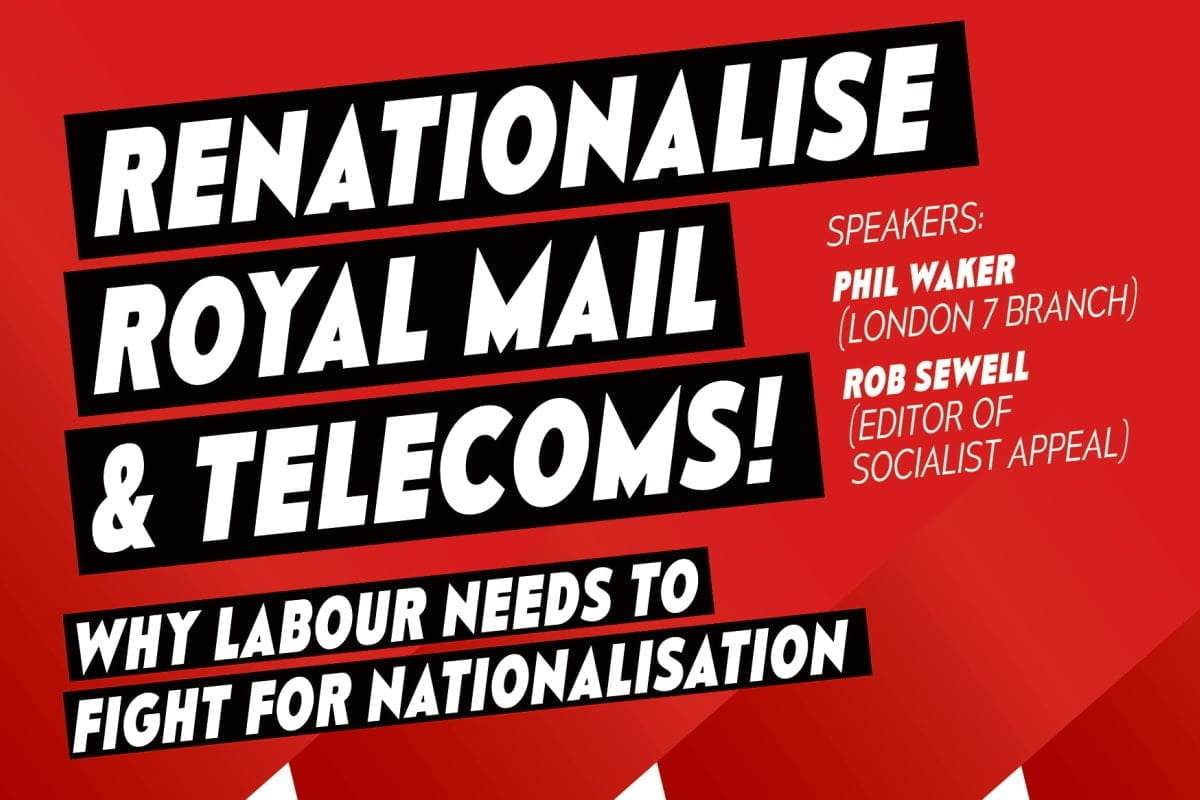“We shouldn’t settle for just a piece of cake – we want the whole bakery!”
The Labour4Clause4 campaign was met with enthusiasm by delegates at the 2018 CWU conference in Bournemouth last week. Delegates packed a campaign fringe meeting (on Tuesday 24th April), sponsored by CWU London 7 branch, to hear the case for public ownership.
The renationalisation of Royal Mail and telecoms was a hot topic at the conference. During Jeremy Corbyn’s address on the opening day of the conference, he emphasised Labour’s commitment to re-nationalising mail, rail and the utilities.
Importantly, Corbyn stressed that nationalisation wouldn’t be carried out as in the past, where industries were run bureaucratically. Instead, he argued that newly nationalised sectors must be placed “under workers’ control”, a policy that we warmly welcome.
Exactly what “workers’ control” will look like will be a key topic for debate within the Labour Party over the coming period. No doubt the right wing will try to limit the policy to simply putting a workers’ representative on company boards – a token representative who would duly be ignored by the majority of millionaire directors.
Socialists must argue instead for real workers’ control and management over the production process, beginning from the grassroots. This should include the election of workplace committees to carry out the implementation of a democratically worked-out plan of production, embracing all sectors of the economy.
No compensation
 Phil Waker, political officer of the CWU London 7 branch, introduced the discussion at the Labour4Clause4 fringe meeting. Phil highlighted how privatisation of the post and telecoms sector had led only to attacks on the workforce, whilst the shareholders are raking in enormous profits. He argued that re-nationalisation in itself would not solve the problems of society, but would allow the potential for the working class to shape its own destiny.
Phil Waker, political officer of the CWU London 7 branch, introduced the discussion at the Labour4Clause4 fringe meeting. Phil highlighted how privatisation of the post and telecoms sector had led only to attacks on the workforce, whilst the shareholders are raking in enormous profits. He argued that re-nationalisation in itself would not solve the problems of society, but would allow the potential for the working class to shape its own destiny.
Rob Sewell, editor of Socialist Appeal, placed the Clause 4 campaign in the context of the global crisis of capitalism. He argued that austerity is not a result of the “nasty Tories”. Instead, it flows from the logic of capitalism, which can no longer afford the reforms of the past.
In order to solve the problems of the working class – low pay, insecure work, unaffordable housing, etc. – a fundamental transformation of society is therefore necessary. It would not be sufficient to nationalise one or two isolated companies or industries. Instead, the “commanding heights” of the economy – including the banks, land, and major monopolies – must be put under public ownership and run for need, not profit.
A lively discussion followed, which touched on the practicalities of nationalisation, including the issue of compensation. In response, Rob pointed to the example of the privatised railways, where the shareholders have been paid by the government to fleece us for decades. After pocketing billions in this way, any “compensation” to these fat cats is out of the question.
Demand the whole bakery!
The Labour4Clause4 campaign received a boost during the conference, when Jane Loftus, the president of the CWU, agreed in a personal capacity to endorse the campaign. The task now for socialist CWU activists is to raise the model motion in their local branches, as well as in the Labour Party through their CLP delegates.
Existing CWU policy is to campaign for the re-nationalisation of Royal Mail. The conference voted to extend this policy to include the telecoms sector, which is a welcome step forward.
For either of these policies to be successfully carried out, however, they should be linked to the wider transformation of society, as envisioned by Clause 4. As Rob concluded, “we shouldn’t settle for just a piece of cake – we want the whole bakery!”






